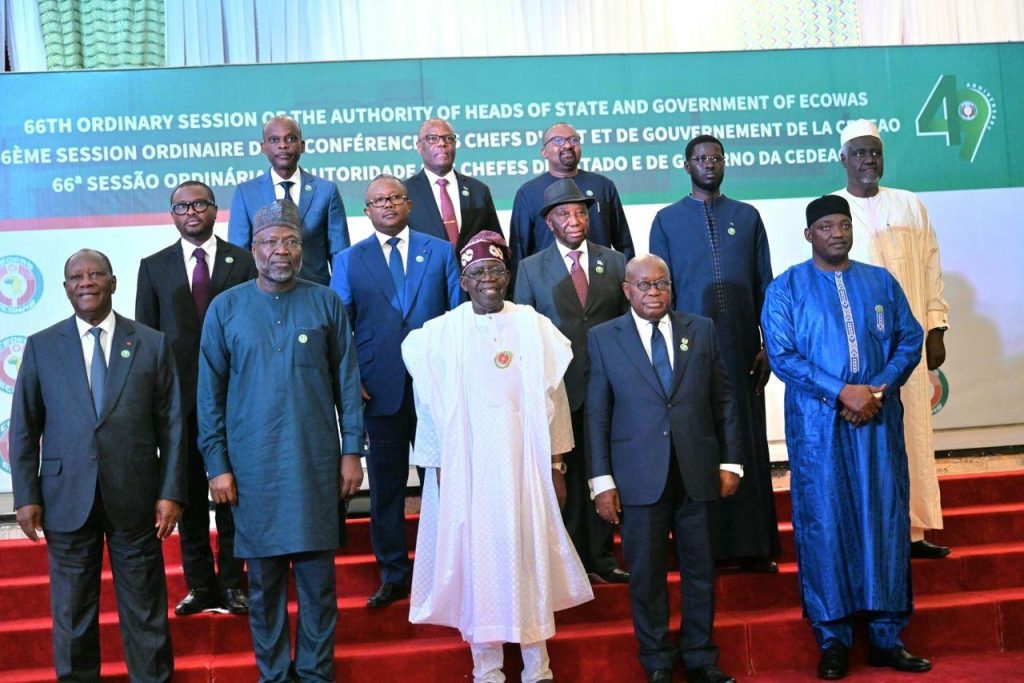West African leaders have given military-led governments in Burkina Faso, Mali, and Niger six more months to reconsider their decision to leave the Economic Community of West African States (ECOWAS). This decision follows their announcement in January 2024, which would have seen the trio’s exit from the bloc by next month.
The three countries, all ruled by military governments following coups, have criticized ECOWAS, accusing the regional bloc of being too aligned with France. They argue that ECOWAS is not serving their interests, especially in light of the growing insurgency in the region, with groups linked to Al-Qaeda and the Islamic State gaining ground.
The bloc’s decision to extend the period for reconsideration, from January 29 to July 29, 2025, aims to keep the door open for dialogue. ECOWAS also appointed Senegalese President Bassirou Diomaye Faye and Togo’s President Faure Gnassingbé to continue negotiations with the breakaway states.

The military governments of Burkina Faso, Mali, and Niger, which have pivoted towards Russia and established the Alliance of Sahel States (AES), have remained steadfast in their commitment to leaving ECOWAS. They stated that their decision is irreversible, adding that they are pursuing a path that best serves their populations.
Tensions between ECOWAS and these countries escalated after the coup in Niger in July 2023, with the bloc threatening military intervention and imposing sanctions. While the bloc has softened its stance, there remains division among member states on how to address the issue of military-led governments in the region.
In a separate move, ECOWAS on Sunday approved the creation of a special court to prosecute crimes committed during the rule of former Gambian dictator Yahya Jammeh. The Special Tribunal for Gambia will address gross human rights violations that occurred between July 1994 and January 2017, when Jammeh was in power. The tribunal is the first of its kind for ECOWAS, partnering with the Gambian government to ensure justice and accountability.
Jammeh’s rule was marked by serious human rights abuses, including forced disappearances, torture, and extrajudicial killings, alongside the misuse of state resources. After losing an election in 2017, he fled into exile, leaving behind a legacy of brutality and corruption.


